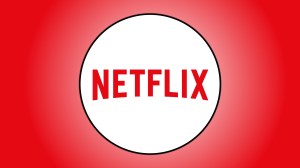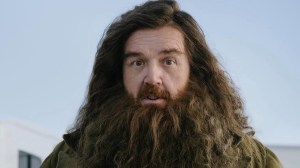The murder-mystery is one of the most timeless storytelling structures, as it blends together a variety of human emotions with disturbing deaths when characters are forced to discover the identity of an unknown killer. While Bodies Bodies Bodies is a riff on that familiar premise, to the point that its title honors a party game in the vein of Werewolf or Mafia in which a secret killer “murders” fellow partygoers, it injects an authentic yet satirical sensibility about the TikTok generation. Dutch director Halina Reijn was tasked with not only honoring the time-honored story structure, but also immersing herself in Gen Z to organically explore how such characters would react to the outlandish situation they finds themselves in. Bodies Bodies bodies is out now in theaters.
Videos by ComicBook.com
In the film, when a group of rich 20-somethings plan a hurricane party at a remote family mansion, a party game goes awry in this fresh and funny look at backstabbing, fake friends, and one party gone very, very wrong.
ComicBook.com caught up with Reijn to talk about collaborating with the cast, embracing the TikTok generation, and that shocking ending.

ComicBook.com: When it came to the cast, the cast was very important to find the right tone, find the right chemistry, and Amandla Stenberg was the first person on board. Who do you think was the hardest character to find the right person for? And then, also, who was the person that, when you cast them, they brought something to the character that you hadn’t even anticipated?
Halina Reijn: Oh, wow. I think all of them did, by the way. I literally think that, even though Sarah DeLappe is such a genius writer and I felt very confident going into it and I thought we had great ideas on paper for the characters, I feel all of these characters only came to life because of them and because of how much homework they did. Because they’re so young, they’re so hungry, they’re so motivated, and they literally brought so much to all of those characters. But I think one of the hardest characters to cast actually, was Alice, Rachel Sennott’s character, because she was not that defined on the page. She had a couple of good jokes, but it was like, who is she exactly? “She’s just a fun-loving…” I was like, “Yeah, but what does that mean?”
Then we found her and she just nailed it. She came with all these ideas and she just really gave the vibe and it was absolutely … Her and Lee Pace together, I mean … But, again, all of them brought so much. Because, especially when you make a film about everybody being the same age, it is very hard to keep everybody interesting and layered and distinctive, because very often, either they become one voice or you have the innocent, the evil, the beautiful, and that’s stupid. So we want it to be real and everybody be good and evil at the same time. I think it’s really thanks to them, the whole film really rests on their shoulders, I feel.
Given the trajectory of the film, doing a sequel with some of these characters is not going to be possible. However, if there was a character that you were to do, say, a prequel, it doesn’t even have to be a horror or a mystery, even if you just did a romantic comedy with one of the characters, was there a character that you just really resonated with that you thought, “I want to know more about them,”?
Well, I have had thoughts and fantasies about doing a prequel, really finding out how they got to know each other and also the history, even if it’s a couple of weeks, but of Bee and Sophie, how they exactly met. I am really interested. Because, of course, I created worlds for all of them. To me, they’re much more than what you see on the screen.
Also, we, of course, cut a lot out of the film, as you do with every film. So you have way more material of them, too. I literally feel these characters are the actors, too, but the characters also are my babies and I want to make films and shows about them and with them and get into their lives more than the film does even. Yeah, I’m obsessed with all of them.
Since I know that the process of developing the script was a bit of an evolution and it underwent some changes, not just with the writing specifically, but just collaborating with the cast and seeing how that dynamic unfolded. Were there many big narrative changes over the course of that evolution or was it more just in character moments or in dialogue that changed?
I think from the moment I got the first script that I ever got to what Sarah and I created together was a huge change, because the biggest change we made was that there is no monster under the bed … I cannot spoil anything, you know what I mean? It’s a huge change, also, where it takes place and just the whole vibe of it. So that was already completely done when we met the actors, but what they changed is a lot of … We wanted to check with them with everything, “Is this how they work with technology? How do you speak? Does this feel genuine to you? Is this funny to you? Or would you say differently?”
Also, I do very long takes. First, I want them to learn all their lines as if they’re going to do a play, so I’m very old school — very classically trained. I’m a strict director, and then I give them all the freedom to do takes, to improvise and add their own ideas and all of that. I’m also like a little leech, I really need them to be part of my creation because I’m literally making a film about a generation that I am not a part of, even though I live in its time.
Not only does it focus on this super specific generation, but also an American generation, so I feel like it was probably an enlightening process for you. What was that enlightenment like? What was your biggest takeaway from what you learned during this collaboration, not only about this generation, but this American generation?
I’ve been obsessed with American culture ever since I saw the film Annie when I was six. I do think I know a lot about American culture and I always wanted to be a part of it. I’m a sucker for the American dream and very naive about it.
But then, doing the research, of course, I was shocked because for the film, I had to understand the education system and all of that, because even if it’s only a darker layer, it is also, we’re making these social comments, so I better know what I’m talking about.
Sarah taught me a lot, but I also did my own research, and I just realized that I grew up with parents who thought of school [while not having] money. That is something you can do in Europe because the government there, they were both artists and they thought it was great to live in poverty because we were artists. But I would never have the access to the education that I had in my country [here]. I had the most elite theater school ever, and I had a beautiful career. Just realizing how hard it is here and how much everything costs, even healthcare, all these things, it’s shocking.
One of the things that really surprised me, having seen the trailer and then seeing the movie, is the trailer very much isolates the trendier buzzwords — the more irritating, obnoxious elements of these characters. And then when I watched the movie, I was so glad that there are characters that I connected with, despite throwing out things like “gaslighting” and “toxic” and “triggering” and that performative stuff. When it came to the editing of the movie or the filming of the movie, how did you find that balance of leaning into those more obnoxious elements of that generation, but still finding the humanity and the joy and actually wanting these characters to survive?
Constantly, whether I’m on stage acting, which I’m not going to do anymore, or directing or writing, just to me, everything’s about balance. So even though my style is very animalistic and raw and sexual, so it looks so chaotic and real, I have a mathematical mind back here where I’m like, “Wait a minute.” So every time, when the scene becomes emotional — for instance, when Maria [Bakalova’s character], at the end of the movie, she talks to the character Sophie about, “My mom is borderline,” da, da, then I like to make a really blunt joke to destroy that moment because otherwise, it might become too sentimental.
That is how I try to work with the characters, as well. Even though I want to make a contemporary movie and be really making comments a little bit about Gen Z, but also about myself and my phone addiction and all of that, I also want to make a point and have characters that you actually root for and that you recognize yourself in, even though they’re a little bit exaggerated, but that you feel something for and you’re charmed by or you’re attracted to, or all of these things.
I’m just constantly trying to balance all of that. And, of course, in the edit, you make those choices, and really, together with the editors, and, of course, the studio and the producers, you really try to find those moments of truthfulness. I’m saying this because my style, in the end, it all boils down to honesty. I don’t like people to be goofy or too comical. I don’t think that’s funny. I think funny comes from being very real in the moment and the circumstances being maybe absurd or crazy, but the actors should be truthful at all times.
WARNING: Spoilers below for Bodies Bodies Bodies
One of the best moments I’ve had in a movie theater in months is when Conner O’Malley walks in at the end. I need to know more about him and how he got involved.
Well, first of all, I want to say that A24 are just heroes at casting. They are absolutely amazing. And there’s actually one person, Noah Sacco, who works there, who I think is a true genius when it comes to casting. He introduced me to this phenomenon Conner O’Malley, who I saw in a movie, and so I was already thinking when I saw that movie, but I didn’t look up his name, “Who is that?” because his energy is so wild, that’s so weird and just great — authentic. We thought, for that role, where it’s like a Chekhov play where you talk about a character the whole play, and then he enters the stage the final minute. You need, really, somebody who brings a world, and especially because this film is dark humor more than anything else, you need someone who can have that look in his eyes. And he says, “Wait, what’s happening?”
I thought he was amazing, just perfect to be that character Max and come in at the very last moment, have a huge moment, but it’s very short. And he’s just a genius. I would love to work with him and do more with him. It’s just a waste of his talent, in a way, but because it is an important moment when he enters, I’m just so grateful that he wanted to do it.
He’s a character that I would like to see a sequel, of him having to cope with the trauma. It doesn’t have to be a horror movie. You could literally do anything, any type of comedy with him, or have it be a crossover with Knives Out or something.
That is so funny. That is amazing. That’s a great idea. I love him. I absolutely adore him. And he’s just such a great human, too. He’s so kind, so lovely. I just literally peed myself the whole time when he was acting. And Pete [Davidson], also, because Pete was watching with me on the monitor and at a certain moment and he was just like, “This is insane!” We were both laughing so loud.
You talked about the monster under the bed — were there other versions where there was a monster under the bed or different characters survive that didn’t survive in the final cut?
There was, way back when I was approached for the project, there was, but I never related to that, to be honest. To me, it was super important that there wasn’t, because that’s a very different thing. I wanted to say something about human nature, even though in a very light and funny and humble way. I don’t want to say anything heavy, but I do want to confront us with our own — the beast in ourselves and is the killer outside of us or inside of us. And then the TikTok deaths, they really exist. I think it’s so telling of … I mean, it’s horrible, that that even happens.
Just the most extreme version of vanity and competitive male, toxic behavior between the two men I thought would be just great, and then having Pete do that. I mean, all of it. But I have to be very honest with you: we were so nervous. We can write it all on the page and be like, “Oh, and then that happens,” and then you have to do it on the day itself. How are you going to technically, how do you get away with that? And how do you technically choreograph that as a dance? So there was a lot of tension and nerves into that moment. And sometimes, when I sneak into the theater last couple weeks and it works, I’m like, “Thank you, Lord.”
A friend of mine brought up this point and it made me curious: Bee never says “I love you” to Sophie no matter how many times she says it, but she kills someone on behalf of Sophie, essentially. Do you think Sophie and Bee, was that a reciprocal love? Did Sophie use “I love you” just as another currency that this generation would use? Where do you think the movie leaves the relationship between Sophie and Bee?
Thank you for saying that because all of this, so much thought went into this, and nobody really knows.
No, we had so many discussions about this. Toxic love is my whole brand, I guess. My first film is about that. My TV show Red Light is about that. My next film will be about that. So I feel that they do … Sophie’s a lovebomber. She wants to smother her, marry her, but she probably will do that two days later with somebody else. And Bee has intimacy issues. She’s way too close with her mother. She’s trying to text her 600 times already in a f-cking car on the way to the house. And then she has intimacy issues and … she soon finds out when the girls are sort of interrogating her, like, “Oh, you’re with her,” and da, da, da.
I feel that two love each other, but it’s very obsessive and toxic. Of course, I love when they fight over the phone instead of the gun at the very end in the mud. The gun is not even, nobody cares, it’s like, “Where’s the phone? The phone?”
I think it’s all Othello, the Shakespeare play about jealousy that I love. I find jealousy a very weird emotion. People kill out of jealousy. It’s a crazy, crazy emotion. I think it’s a very toxic love, but I think this experience is an exorcism, and I wonder how … I don’t think they could continue after this, but who knows?
Bodies Bodies Bodies is out now in theaters.
This interview has been edited for length and clarity. You can contact Patrick Cavanaugh directly on Twitter.








